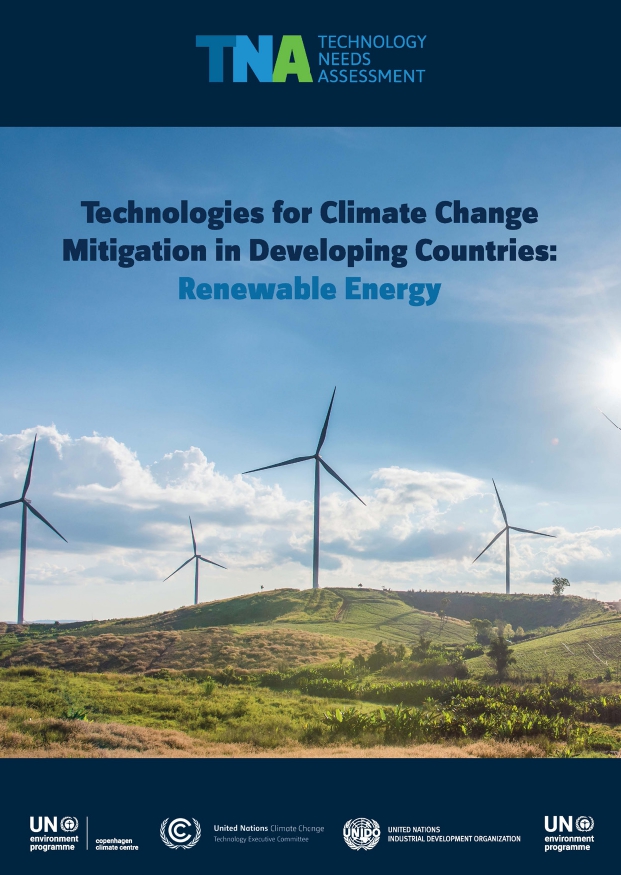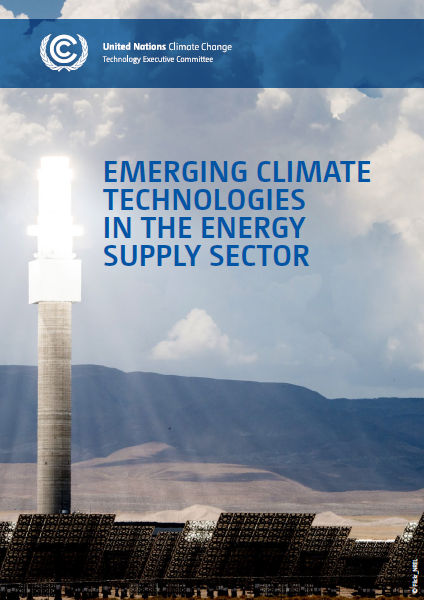Energy Supply Sector
Technology Executive Committee
The power sector is the largest contributor to global greenhouse gas emissions. In 2010, the energy supply sector was responsible for approximately 35% of total anthropogenic GHG emissions. To achieve the goals of the Paris Agreement, countries are required to peak greenhouse gas emissions as soon as possible and achieve climate neutrality by mid-century. It is of paramount importance making efforts to transform and decarbonize energy systems that align with the Paris goals.
TNA Guidebook on Renewable Energy: Energy Supply from Renewable Sources, Energy Storage, and Energy Transmission and Distribution
The TEC identified the need for a sectoral guidebook on energy, as a result of a gap assessment of guidance on Technology Needs Assessments (TNA), conducted in 2023 under its rolling workplan 2023-2027. Developed in partnership with the United Nations Industrial Development Organization (UNIDO) and the UNEP Copenhagen Climate Centre (UNEP-CCC), the guidebook could serve as a valuable resource for technology practitioners and national TNA teams to inform their technology choices and advance a rapid and just transition to climate-resilient and sustainable energy systems. This guidebook is part of a series of TNA guidebooks, developed under the umbrella of the GEF-funded Global TNA Project, implemented by the UNEP-CCC. Find out more about available guidance on TNA.
The TNA guidebook on renewable energy:
Acknowledgement: This guidebook has been developed with generous support provided by UNIDO, UNEP-CCC and the Ministry of Economy, Trade and Industry of Japan. It has also benefitted from valuable inputs of experts from UNIDO, UNEP-CCC, and the UNFCCC secretariat. |
Emerging climate technologies in the energy supply sector
The energy supply sector offers a wide range of emerging decarbonization technologies with high potential for climate change mitigation. Such technologies also have relevance to multiple social and environmental co-benefits (e.g., employment and income generation for local communities, reduced impact on water and land).
The technical paper:
The overall objective is to provide policymakers and other relevant stakeholders with a set of information that may help their decision making when defining national and/or regional strategies for accelerating the scale-up and diffusion of these technologies Acknowledgement: The technical paper has been developed with the contribution of the Government of Japan |


